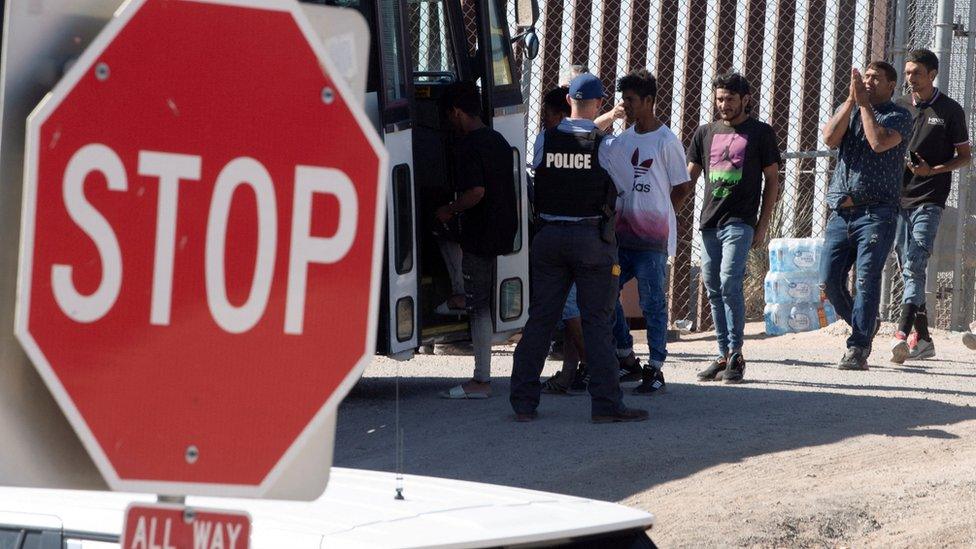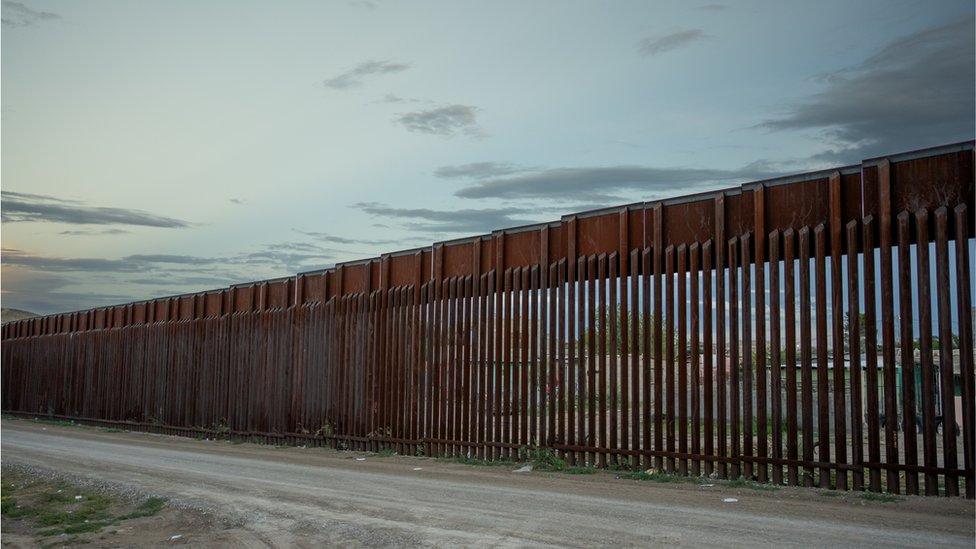Eight-year-old who died in border custody repeatedly denied ambulance
- Published

Texas, where the family crossed into the US, is a hotspot of border control activity
An eight-year-old girl with underlying medical conditions who died in US Border Patrol custody was repeatedly denied requests to go to hospital.
Anadith Tanay Reyes Alvarez was seen by medical staff nine times in three days- with "fever, flu-like symptoms, and pain", investigators said.
She was seen by a nurse four times on the day she died.
However, the nurse denied "three or four requests from the girl's mother for an ambulance to be called".
Details of the tragedy come from Customs and Border Patrol, which has written a report about Alvarez's death. , external
The girl, who was born in Panama to Honduran parents, was treated for her symptoms on 16 May with flu and fever medications, ice packs, and a cold shower, it said.
But none of the staff seemed aware that Alvarez suffered from sickle cell anaemia, a condition which usually requires life-long treatment, or that she had a history of congenital heart disease.
The family said they reported her medical history when they had first been taken into custody at a different facility a week earlier.
Agency rules say detention should not be longer than three days, but that is often not the case, as average processing times have lengthened drastically in recent years.
The family were transferred to the Harlingen facility, where Alvarez died, for medical isolation after the girl tested positive for the flu. CCTV at the facility had been broken for weeks, and investigators have pieced together events from interviews.
It said a different member of medical staff reported bringing "a pile of documents" and some folic acid tablets from the family home to the nurse the morning the girl died. Folic acid - also called vitamin B9 - can be used to help treat anaemia.
The nurse allowed Alvarez to take one tablet, but "declined to review the papers", CBP said.
At that stage, her symptoms had worsened to include stomach ache, nausea and difficulty breathing.
Watch: What is the Title 42 border policy?
Hours later, after the fourth visit that day to the nurse, Alvarez's mother returned carrying her daughter in her arms, who seemed to be having a seizure. It was at that point that emergency services were called, but the eight-year-old was declared dead within an hour.
The agency's version of events appears to support details in an interview her mother, Mabel Alvarez Benedicks, gave to the Associated Press news agency days after her daughter's death.
"They killed my daughter, because she was nearly a day and a half without being able to breathe," she told AP, external. "She cried and begged for her life and they ignored her. They didn't do anything for her."
The CBP's review so far suggests that the medical staff never consulted with doctors - including an on-call paediatrician - about Alvarez's illness.
The young girl's autopsy found a build-up of fluid in her chest cavity, and noted "the attempted surgical repair of the girl's aortic stenosis [a heart condition], and also referenced the provided history of sickle cell anaemia". A cause of death has yet to be officially declared.
In a separate statement Thursday, the acting head of CBP Troy Miller said, external her death was "a deeply upsetting and unacceptable tragedy".
"Several medical providers involved in this incident have now been prohibited from working in CBP facilities," he said.
The agency's top medical officer was carrying out a review of procedures across all its facilities, and steps had been taken to review the cases of "all medically fragile individuals," he added.
Alvarez's death was the second death in custody of a child in two weeks, after a 17-year-old Honduran boy, Ángel Eduardo Maradiaga Espinoza, died in a shelter in Florida run by the Department of Health and Human Services' Office of Refugee Resettlement.
Related topics
- Published18 May 2023
